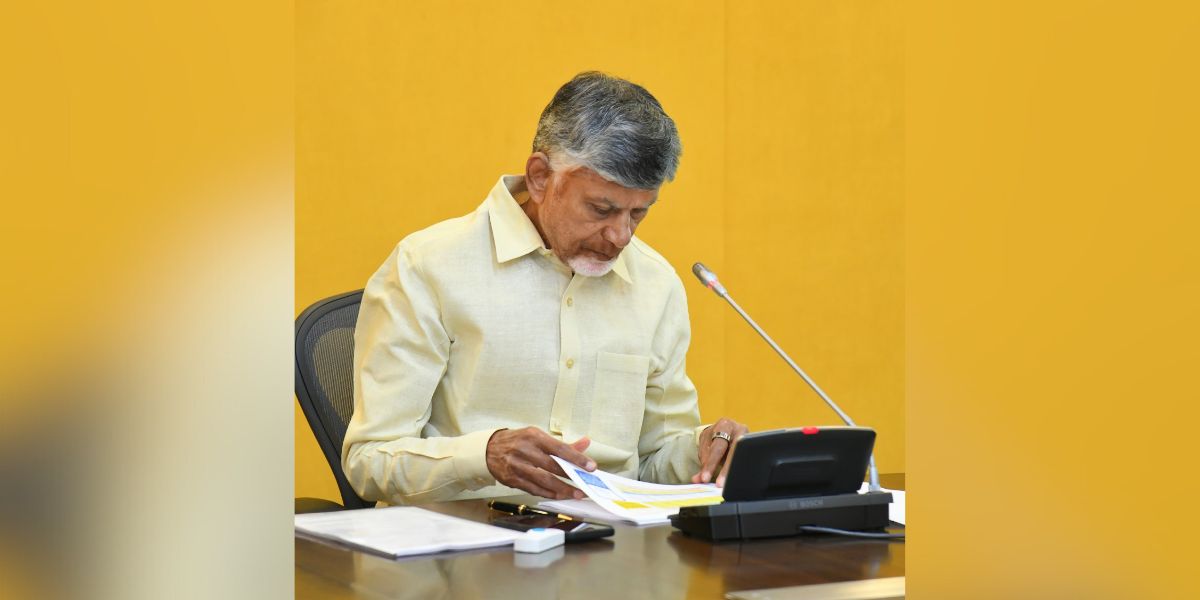Published Aug 06, 2025 | 7:54 PM ⚊ Updated Aug 06, 2025 | 7:54 PM

Andhra Pradesh Chief Minister N Chandrababu Naidu.
Synopsis: The ₹7,500 crore loan will support land acquisition, infrastructure development, and upgrades for major industrial clusters and parks across the state.
The Andhra Pradesh Cabinet on Wednesday, 6 August, made a slew of decisions to fuel industrial growth, tourism and women’s welfare, among others.
Briefing the media after the 27th meeting of the Cabinet, Public Relations Minister K Parthasarathi said the council of ministers has approved a proposal by the Industries and Commerce Department to raise a loan of ₹7,500 crore through the Andhra Pradesh Industrial Infrastructure Corporation (APIIC) for industrial development over the next nine to 12 months.
The fund will support land acquisition, infrastructure development, and upgrades for major industrial clusters and parks across the state. Key decisions include:
The Cabinet approved the Excise Department’s proposal for the 2025-28 Bar Policy based on recommendations from a Cabinet Sub-Committee formed via G.O Rt. No. 582 (29 August 2024). It reviewed policies from other states and stakeholder inputs.
Permit rooms are reintroduced for A4 shops with a licence fee of ₹5-7.5 lakh based on Retail Excise Tax, allowing only ready-to-eat snacks in up to 1,000 sq.ft. spaces. This is expected to generate ₹256 crore annually and curb public drinking.
The Cabinet approved the Youth Advancement, Tourism, and Culture Department’s proposal to issue a Request for Proposal (RFP) to select agencies for the operation and maintenance (O&M) of 22 hotels and resorts under the Andhra Pradesh Tourism Development Corporation (APTDC), grouped into six clusters. The initiative aims to improve service quality, operational efficiency, and financial stability. Key points:
Eligibility criteria:
Fulfilling the ruling coalition’s election promise, the Cabinet approved the Transport, Roads, and Buildings Department’s proposal to implement the “Free Bus Travel” scheme for women, girls, and transgender individuals from 15 August 2025, via AP State Road Transport Corporation (APSRTC) buses. Key details:
Additional measures include the procurement of 3,000 electric bus this year, 1,400 more in two years, hiring drivers and mechanics, body cameras for female conductors, CCTV in buses, and improved bus station facilities.
The Cabinet approved the AP Land Incentive for Tech Hub (LIFT) Policy 2024-2029 to establish the state as a tech hub post-Hyderabad bifurcation. The cost-based incentive strategy targets major companies by leveraging infrastructure and talent. Key provisions:
Eligibility:
The Cabinet approved a ₹900 crore government guarantee for Andhra Pradesh Power Development Company Ltd (APPDCL) to address its financial distress and avoid negative reporting to CIBIL, CRISIL, etc. Conditions include aligning interest rates with MCLR, no foreclosure charges, and a 2% commission on the guarantee amount.
The Cabinet approved increasing free electricity for hair-cutting saloons from 150 to 200 units per month for 40,808 registered saloons, costing ₹100 crore annually. This supports the Nai Brahmin community’s socio-economic upliftment, with ₹50 crore allocated in 2025-26 and an additional ₹50 crore required.
The Cabinet approved government guarantees for APSPDCL (₹3,544.57 crore) and APCPDCL (₹1,029.37 crore) to ensure timely implementation of the Revamped Distribution Sector Scheme (RDSS), supporting infrastructure and smart metering for improved power reliability and quality.
The Cabinet approved the repeal of the AP Media Accreditation Rules, 2023, and introduced the Comprehensive AP Media Accreditation Rules, 2025. The new rules include representation for print and electronic media journalists in accreditation committees and provisions for small newspapers.
Extension of ban on CPI (Maoist)
The Cabinet extended the ban on the Communist Party of India (Maoist) and its front organisations under the AP Public Security Act, 1992, for another year from August 17 and 9, 2025, due to ongoing disruptive activities.
Home Department: Assistant Public Prosecutors
The Cabinet approved five regular Assistant Public Prosecutor posts for new Judicial First-Class Magistrate Courts in Puttaparthi, Movva, Gannavaram, Gajuwaka, and a special court in Tirupati for red sandal smuggling cases, increasing the cadre strength from 204 to 209.
Revenue Department: Land for Industrial Park
The Cabinet approved transferring 81.227 cents of government land in Thammiganipalle village, Chittoor, to APIIC’s Zonal Manager for an industrial park at no cost.
Ahead of National Handloom Day, the Cabinet approved incentives for handloom workers, including 200 units of free electricity for handlooms, 500 units for power looms, 5% GST reimbursement, and a thrift fund for weavers. The initiatives aim to strengthen the sector, supporting 93,000 handloom families and 11,488 power loom units, with a total allocation of ₹648.59 crore.
(Edited by Majnu Babu).

